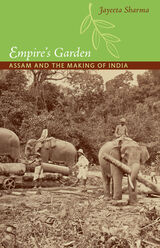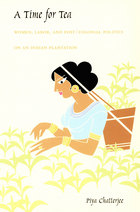

Tea growing was a prosperous industry in Sichuan when Wang Anshi's New Policies created a Tea Market Agency to buy up Sichuanese tea and trade it to Tibetan tribesmen for cavalry horses. At first the highly autonomous Agency not only acquired the needed horses but made a profit. After the Jurchen conquest of North China, however, market realities changed and the combined Tea and Horse Agency's once successful policies ruined tea farmers, failed to meet quotas for horses, and ran a deficit. Smith details the workings of Sichuan tea farming and the tea trade, examines the geopolitical factors that forced the Song to buy horses, and graphically describes the difficulties of driving them more than a thousand miles through rugged mountains with only inexperienced conscripts as trail hands.
In this study of fiscal sociology, Smith also explains how the Tea and Horse Agency transformed the Sichuan local elite, which was notorious for its resistance to state power, into imperial civil servants eager to tax their own region. He draws on modern theories of corporate behavior to explain what made the inner workings of the Agency an extraordinary departure for the Chinese civil service; and he demonstrates how the Agency put into practice the most radical New-Policies theories of state economic activism. The Agency made entrepreneurs out of bureaucrats, but ultimately became ruinously tyrannical as the system of state rewards and punishments drove its personnel to actions that crippled key sectors of the economy.

Allowing personal, scholarly, and artistic voices to speak in turn and in tandem, Chatterjee discusses the fetishization of women who labor under colonial, postcolonial, and now neofeudal conditions. In telling the overarching story of commodity and empire, A Time for Tea demonstrates that at the heart of these narratives of travel, conquest, and settlement are compelling stories of women workers. While exploring the global and political dimensions of local practices of gendered labor, Chatterjee also reflects on the privileges and paradoxes of her own “decolonization” as a Third World feminist anthropologist. The book concludes with an extended reflection on the cultures of hierarchy, power, and difference in the plantation’s villages. It explores the overlapping processes by which gender, caste, and ethnicity constitute the interlocked patronage system of villages and their fields of labor. The tropes of coercion, consent, and resistance are threaded through the discussion.
A Time for Tea will appeal to anthropologists and historians, South Asianists, and those interested in colonialism, postcolonialism, labor studies, and comparative or international feminism.
Designated a John Hope Franklin Center book by the John Hope Franklin Seminar Group on Race, Religion, and Globalization.
READERS
Browse our collection.
PUBLISHERS
See BiblioVault's publisher services.
STUDENT SERVICES
Files for college accessibility offices.
UChicago Accessibility Resources
home | accessibility | search | about | contact us
BiblioVault ® 2001 - 2024
The University of Chicago Press









